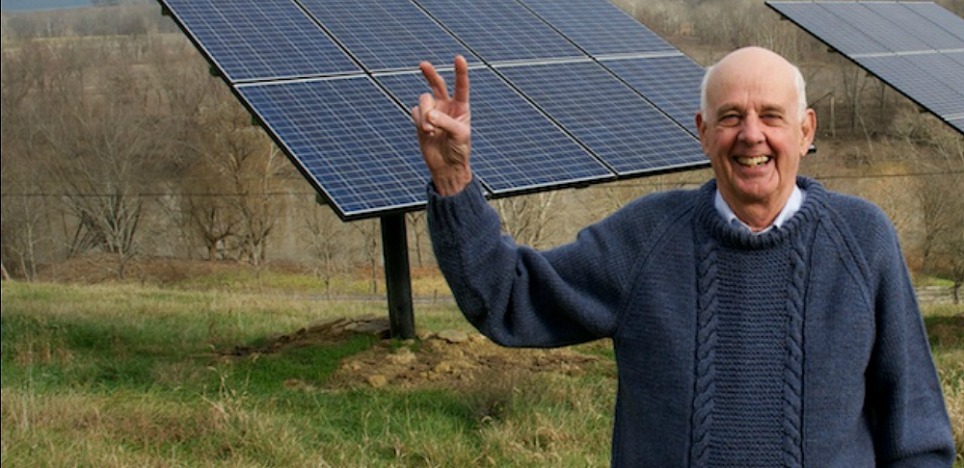Wendell Erdman Berry as born on August 5, 1934, in Henry County, Kentucky. A philosopher, essayist, poet, novelist, farmer, environmental activist, and cultural critic, he has for decades spoken out for family farmers, their land, and their small towns which have fallen into disrepair and been labelled by hotshot experts as "nowhere." His lyrical and pensive essays and poems reveal his deep loyalty to place, beauty, and the humble virtues of family and community.
Berry earned a bachelor's degree from the University of Kentucky in 1956 and a master’s degree in 1957. He has taught at Stanford University, Georgetown College, New York University, the University of Cincinnati, Bucknell University, and the University of Kentucky. He has received numerous awards and honors, among them a Guggenheim Foundation Fellowship (1962), a Rockefeller Foundation Fellowship (1965), a National Institute of Arts and Letters award for writing (1971), Membership in the Fellowship of Southern Writers (1991), the National Humanities Medal (2010), a Fellowship from The American Academy of Arts and Sciences (2013), and a Richard C. Holbrooke Distinguished Achievement Award (2013). In 2015, he became the first living writer to be inducted into the Kentucky Writers Hall of Fame.
Berry disagrees with those who view the American Dream as being about success and upward mobility. By adhering to that focus, universities train students in the flawed virtues of raw ambition, needless risk-taking, and careless transience. For most of his life, he has lived and worked with his wife, Tanya Berry, on a farm in Port Royal, Kentucky, trying, as he puts it, "to see from there as far as I can."
His more than 50 books see very far -- and carry us very far -- indeed. They include the novel Hannah Coulter (2004), the essay collections Citizenship Papers (2005) and The Way of Ignorance (2006), and Given: Poems (2005). You can learn more about Berry and his writings on the Counterpoint Press website.
To Name This Day:
 Quotes
Quotes
Choose one of these Wendell Berry quotes to carry with you this day, reminding you of the possibility and hope in living close to nature and her rhythms.
"Today, as always as I am afoot in the woods, I feel the possibility, the reasonableness, the practicality of living in the world in a way that would enlarge rather than diminish the hope of life."
— in Recollected Essays 1965-1980: "The Long-Legged House"
"I come into the peace of wild things
who do not tax their lives with forethought
of grief."
— from "The Peace of Wild Things" (poem)
"The earth we have before us now is still abounding and beautiful. … The health of nature is the primary ground of hope -- if we can find the humility and wisdom to accept nature as our teacher."
— in Hope, Human and Wild by Bill McKibben
"When we work well, a Sabbath mood
Rests on our day, and finds it good."
— in A Timbered Choir
 Spiritual Practice
Spiritual Practice
"We all come from divorce. This is an age of divorce. Things that belong together have been taken apart, and you can't put it all back together again. The only thing you can do is take two things that ought to be together and put them back together. Two things, not all things. That's the way the work has to go. So the main thing becomes a kind of earnest of your faith in and your affection for things that we miss and would like to have again."
— Wendell Berry's reply to a student's question in the documentary Look & See: A Portrait of Wendell Berry
Choose two things that you think belong together and that currently stand apart. These could be personal — for instance you and someone with whom you'd like to reconcile — or wider-ranging, such as the United States and world peace. Write out a strategy of three small, achievable ideas to bring the two polarities a little closer. Then see what you can do to follow through on that strategy over the next few days.
